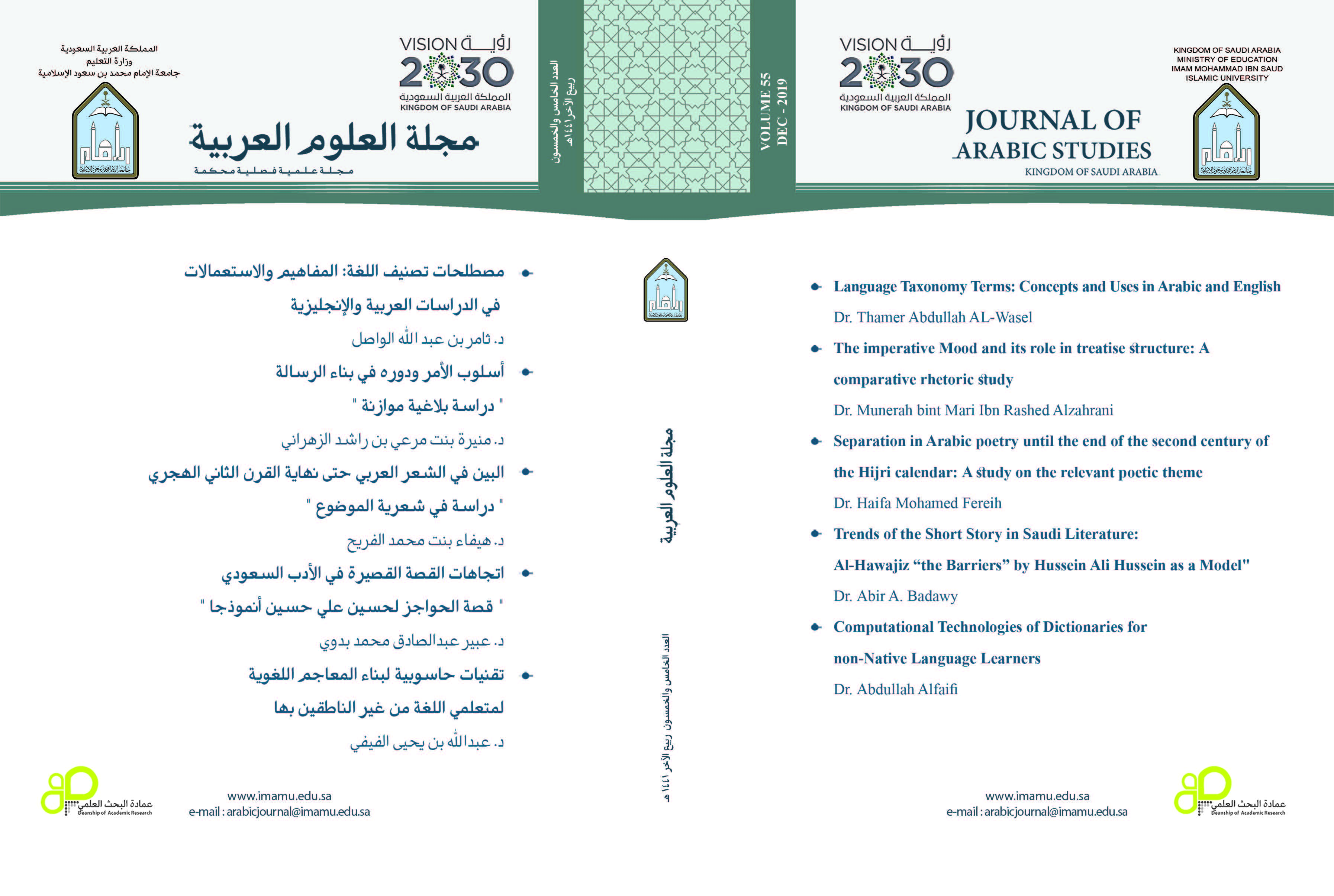Language Taxonomy Terms: Concepts and Uses in Arabic and English
Abstract
The current paper discusses in detail the main terms for taxonomizing language, which are used in traditional and modern Arabic literature; namely: Loghah (language), Lahjah (dialect), Lisan (tongue), Al-Ammiyah (vernacular) and Al-Fushaa (Standard Arabic). The approach that I used in this piece of research was descriptive and analytical. More specifically, I analyzed different samples of new and old linguistic books in order to trace the uses of these terms by the authors and find out the similarities and differences in such uses. In addition, I compared the major terms for taxonomizing language between Arabic and English to explore the similarities and differences, as well as the ways in which the Arabic terms have been influenced by English. The outcomes show that the termsLogah, Lahjah, Lisan, Al-Ammiyah and Al-Fushaa are original Arabic terms and have their roots in traditional Arabic literature, and they are still widely used in current linguistic studies. The term Lahja also has its root in traditional Arabic studies, and yet, it was not commonly used as a term for taxonomizing language in traditional Arabic books. The current study also shows that English has similar terms with meanings corresponding to the Arabic terms mentioned above, as well as additional terms not found in traditional Arabic literature. It seems that contact with modern western linguistics in general – particularly English linguistics – has played a major role in enriching Arabic linguistics, and that a great deal of English language taxonomy terms (or their concepts) have been incorporated into Arabic. The current research also shows that, in comparison to Arabic, English language taxonomy terms are more stable and systematic. It seems that there are a number of problematic issues regarding the Arabic language taxonomy terms. Some of the most obvious issues are: the uses of different terms that refer to the same concept, or vice versa (the use of one term that has different meanings).




